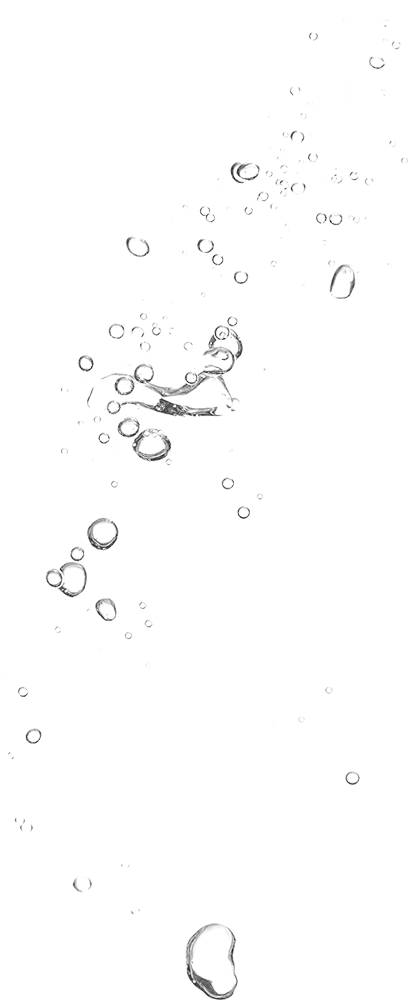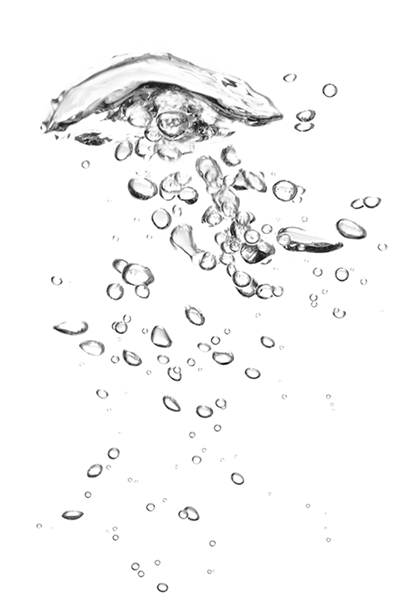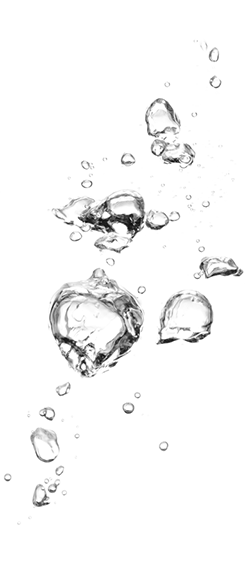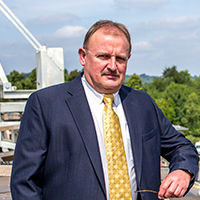


Africa
Some of Biwater’s earliest international contracts were secured in Africa in the 1960s, when Sir Adrian White led efforts to address growing water treatment and supply shortages across the continent. Over the years, he secured large turnkey design-build projects for capital cities, ongoing ownership and operation contracts, and extensive rural water supply schemes.
- 6 Regional offices
- 45+ Years of experience
- 80+ Biwater employees
- 14.5% Of group revenue*
Highlights of Biwater’s contracting experience in Africa include:
- The first use of the innovative Biwater Tower, a compact, vertically arranged, water treatment plant with elevated storage for remote rural and semi-urban communities
- A series of turnkey design-build water and wastewater treatment plants across the continent, including package plants
- The delivery of new large-scale water treatment plants and extensive transmission and distribution pipelines for major cities across west Africa
- Extensive water and wastewater treatment plant projects in the Maghreb region of Africa
- The ongoing success of the innovatively financed turnkey water treatment plant serving the historic city of Omdurman, Sudan
Water has been the focus in Africa until recently. Now the tides are changing and Biwater are securing a number of wastewater treatment contracts that put a primary focus on harnessing effluent for reuse. Recent wastewater contract awards across Morocco and Algeria demonstrate the importance and increased interest in investing in sustainable solutions that address both water and sanitation issues.

Giles Jackson
Regional Director for Africa
Giles has been delivering water infrastructure works across the UK and Africa since the 1970s for Biwater. He has developed an in-depth understanding of the water industry and the diverse needs of nations across the continent.
Along with managing the longstanding African regional offices and their ongoing operations, Giles serves on the Board of Directors for Biwater International Limited. As the Biwater Quality Manger, he oversees a team responsible for implementing the company’s processes and procedures.
Giles completed his Higher National Diploma in Civil Engineering and went on to become a specialist in foundation engineering. Looking to broaden his experience beyond the UK and explore what the water industry had to offer, Giles joined a water contracting company called Shellabear Price, which was acquired by Biwater in the 1970s.
As a Site Engineer for Shellabear Price, Giles was responsible for constructing pipelines, water retaining structures and pumping stations. In the early 1980s, he relocated to Nigeria to support Biwater with 50 rural site surveys and the construction of a series of 47 turnkey water projects.
In Nigeria, his foundation engineering experience was called upon for a complex water treatment plant built on an alluvial floodplain. Notably, Giles also worked on the 134 project Malaysian Rural Water Supply Scheme before travelling to Egypt to work on the construction of an extensive pipeline project.
Favourite Biwater memory:
“Being the company’s longest serving employee working on the Malaysian Rural Water Supply Scheme was really something special. I was involved every step of the way, from pricing the job in the early 1980s, to delivering the extensive 134 project scheme spanning all 13 Malaysian States. There were cynics who thought we couldn’t pull it off, but we did and it was an all-round success story to be proud of.”
Outlook for the future:
“Biwater will continue to innovate to improve efficiencies, production capacities and distribution of treated water. Water reuse will also rise in importance, especially across Africa, where the focus will shift from investments in water treatment to investments in reuse solutions and the delivery of advanced water treatment plants – there has never been a better time to take advantage of new and more efficient technologies to improve sanitation and overcome water scarcity.”
Key highlights:
Financed projects:
- Niger State Rural Water Supply Scheme Phase I & II, Nigeria: USD $362m
- Kwara State Rural Water Supply Scheme, Nigeria: USD $434m
- Omdurman Water Supply and Optimisation Scheme, Sudan: USD $133m
- Tamale Water Supply and Optimisation Project, Ghana: USD $64m
- Sogakope Water Supply Project, Ghana: USD $49m
Awards:
- Abuja, Nigeria: 2014 Water Project of the Year, Global Water Awards (Highly Commended)
- Omdurman, Sudan: 2011 Engineering Excellence Award, Consulting Engineers SA
- Omdurman, Sudan: 2009 Sustainability Award, Global Water Awards (Highly Commended)
Our regional offices
Biwater International Limited
Postal address:
36 Nii Bonney Crescent, Dzorwulu, Accra, Ghana, (P.O. Box 17062, Accra-North).
Email:[email protected]
Biwater Algerie Spa
Postal address:
25 Rue Mustapha, Ouali Essayed, Alger Centre, 16000, Algeria
Tel:+213 21 616078
Email:[email protected]
Biwater Construction Limited
Postal address:
Biwater Construction Limited, Libya Branch, Almenshi Street, Bin Ashour, Tripoli, Libya
Tel:+218 913 833 825
Email:[email protected]
Biwater Nigeria Limited
Postal address:
Plot 12B Kaduna-Abuja Expressway Suleja, Niger State, Nigeria (PMB 93 Area 10 Garki, Abuja)
Tel:+234 703 1667849
Email:[email protected]
Biwater International Limited
Postal address:
Plot 315 Block 6, Al Manara, Omdurman, Khartoum, Sudan
Tel:+249 155 205607
Email:[email protected]
Our projects in Africa
The table below provides an overview of some of our recent projects in Africa, as well as a number of our flagship projects. *Based on Biwater’s financial accounts year ended 30 June 2017
The Project
The Tamale Water Supply Scheme comprises a river intake on the White Volta River, water treatment plant (WTP) with ancillary infrastructures at Yapei, treated water transmission main to Tamale, new storage reservoirs at the existing reservoir sites at Bagabaga and Kaladan to supply water into the Tamale primary and secondary distribution system.
In addition to the main WTP and transmission to Tamale, this Project will also include a new water transmission main from the WTP to Damongo, via Busunu, and associated infrastructure.
The Project also includes the implementation of Water Asset Management (WAM) techniques, together with the construction of primary and secondary distribution network expansion with Tamale.
Environmental and Social Impact Assessment
The Ghana Water Company Limited has received the Environmental and Social Impact Assessment (ESIA) report for the Tamale Water Supply Scheme from Biwater International Limited; the general public and persons specifically affected by the Tamale Water Supply Scheme project are invited to study the ESIA Non-technical Summary Report and make comments on the same.
The invitation to the general public seeks to offer different stakeholders the opportunity to voice out their opinions and comments on the environmental and social implications of the Proposed Tamale Water Supply Scheme project. This is so that the development of the water supply scheme can be done in a manner that ensures sustainable development for the present and future generations.
If you have any comments individually or collectively, these can be submitted in writing to the Contacts using the email addresses given.
The deadline for receiving comments is 1st November 2021.
Click on the link below to download the Tamale Water Supply Scheme Project ESIA Non-Technical Summary full document.
Tamale Water Supply Scheme Project ESIA Non-Technical Summary document
Omdurman
Sudan
New build
Turnkey design and construction of a water treatment plant to serve the historic city of Omdurman, one of the three cities making up Greater Khartoum. Since completion in 2010, Biwater has continued to operate and maintain the facility ensuring that treatment capacity and quality standards are met. The plant boasts an innovative water intake structure on the River Nile that can ingeniously handle the water level changes and the varying quantities of suspended solids, colour and silt present in the water source. This water project was among the first in Sudan to be funded entirely by a combination of Export Credits, Development Finance and a Grant element all of which came together to finance 100% of the project costs. Finance was arranged under a 10 year deferred payment capital light structure.
Scope of works:
Finance, design, construction, operation and maintenance.
Water treatment capacity:
200,000 m3/day
200 MLD
52.8 MGD US
Laayoune
New build
As the first wastewater treatment plant for Laayoune this project will drastically improve sanitation for the local population. The plant will serve 350,000 people across this key population centre. Effluent from the plant will be reused for irrigation, which will greatly support agricultural activities in this arid region.
Scope of works:
Design and construction, operation and maintenance supervision.
Wastewater treatment capacity:
20,000 m3/day
20 MLD
5.3 MGD US
Zighoud Youcef
Algeria
New build
The design and construction of Zighoud Youcef wastewater treatment plant will provide significant improvements in sanitation for over 100,000 inhabitants in the Constantine and Skikda Provinces. The plant will utilise a conventional activated sludge treatment process to treat wastewater.
Scope of works:
Mechanical and electrical design, supply, construction, operation and maintenance supervision.
Wastewater treatment capacity:
13,000 m3/day
13 MLD
3.4 MGD US
Zeralda
Algeria
New build
The Zeralda wastewater treatment plant is being built to serve over 100,000 inhabitants approximately 20km west of Algiers. The plant will be situated in a semi-urban area along the coast, which is known as ‘Résidance d'état’ (green forest area). The treated effluent will flow to a sea outfall during the winter months, and during the summer when rainfall is scarce, it will undergo ultraviolet disinfection for reuse as irrigation water.
Scope of works:
Design and construction, operation and maintenance supervision.
Water treatment capacity:
17,500 m3/day
17.5 MLD
4.6 MGD US
Aourir, Agadir
Morocco
New build
Turnkey wastewater treatment plant that was built to improve sanitation for local residents, with added capacity to process wastewater for the numerous tourist resorts being developed along the coast. Agadir is a popular area for tourists who swim and surf in the waters; meeting quality standards for effluent discharge was critical. The plant was designed to house a solar sludge drying facility and handle the tertiary treatment of wastewater for reuse on nearby golf courses.
Scope of works:
Design and construction, operation and maintenance supervision.
Wastewater treatment capacity:
19,000 m3/day
19 MLD
5 MGD US
Abuja
Nigeria
New build
Two treatment plants (Phase III and IV) of the Lower Usuma Dam water treatment plant delivered simultaneously to rapidly increase the capacity of drinking water for the growing population in Abuja. On-site training was conducted to ensure that vital knowledge was transferred and the handover of operations was seamless. In April 2014, the President of the Federal Republic of Nigeria, His Excellency, Dr. Goodluck Ebele Jonathan, officially commissioned and toured the plant with a number of high ranking officials. He gave a speech highlighting the success of the project and unveiled a marble plaque commemorating the occasion.
Scope of works:
Design, construction, operation and maintenance supervision and training.
Water treatment capacity:
480,000 m3/day
480 MLD
126.8 MGD US
Khenifra
Morocco
New build
The wastewater treatment plant in Khenifra was designed to cater for Khenifra’s expected population expansion through to 2025. The plant was the first in the country to make use of trickling filters. The proven low cost technology has kept energy and operational costs to a minimum, ensuring that the rural inland community can operate and maintain the facility for years to come.
Scope of works:
Design and construction, operation and maintenance supervision.
Wastewater treatment capacity:
23,000 m3/day
23 MLD
6.1 MGD US
Boukhalef
Morocco
Upgrade
Rehabilitation works of the Boukhalef wastewater treatment plant improved the quality of effluent discharge to exceed international standards, as well as Morocco’s standards for irrigation water. Reuse water from the plant was used for the irrigation of green areas in Southern Tangier, including golf courses. Rehabilitation of civil engineering works were required alongside the installation of new electromechanical equipment and tertiary treatment facilities. In November 2015, The Moroccan King, Mohammed VI, held an official visit and inauguration ceremony to mark the achievements of the rehabilitation project. His Highness conducted an official ribbon cutting and unveiled a plaque commemorating the opening.
Scope of works:
Design and construction.
Wastewater treatment capacity:
26,700 m3/day
26.7 MLD
7.1 MGD US
Setif
Algeria
New build
Wastewater treatment works were built to serve over 100,000 residents in the ‘City of Bridges’, following on from a ductile iron pipes equipment supply project. The plant and pipe installation works have drastically increased drinking water supply to the city.
Scope of works:
Design and construction.
Wastewater treatment capacity:
18,000 m3/day
18 MLD
4.8 MGD US
Kumawu, Konongo and Kwahu Tafo
Ghana
Installation
The drinking water supply project served in excess of 670,000 across three population centres. Kumawu was initially the focus of this pipeline installation project, then an addendum was added to include Konongo and Kwahu Tafo. A skilled workforce overcame the challenges of laying pipework, welding and handling logistics over very steep terrain. Over 55km of pipework were added to the network.
Scope of works:
Construction and pipeline installation.
Water treatment capacity:
N/A
Tamuda Bay
Morocco
New build
Wastewater treatment works were built to serve 170,000 local residents. The works were built on a raised platform to protect against flooding and included two wastewater treatment streams. The effluent is used for domestic and commercial irrigation activities nearby.
Scope of works:
Design and construction.
Wastewater treatment capacity:
32,400 m3/day
32.4 MLD
8.6 MGD US
Kpong
Ghana
New build
Water treatment and supply works provided Kpong north and south with access to an increased capacity and quality of drinking water. For the pipelines, excavation was carried out along challenging terrain that required breaking out hard rock. Due to the hilly nature of the local topography, the scope of works included the provision of numerous road, stream and river crossings.
Scope of works:
Construction a water treatment plant and pipeline installation (two individual contracts for Kpong north and south).
Water treatment capacity:
41,000 m3/day
41 MLD
10.8 MGD US
Beida
Libya
Upgrade
Rehabilitation and expansion project, which involved the design, supply and delivery of all mechanical and electrical equipment, the rehabilitation and construction of civil structures, as well as operation and maintenance following commissioning. The ultimate aim of the project was to increase wastewater treatment capacity to serve a population of up to 125,000 in Beida, the capital of the Green Mountain Region.
Scope of works:
Design, supply, construction, operation and maintenance supervision.
Water treatment capacity:
25,000 m3/day
25 MLD
6.6 MGD US
Green Mountain Region
Libya
New build
Biwater constructed nine package wastewater treatment plants (biCOMs) to serve rural populations of between 5,000 and 15,000. The project represented one of the first investments in wastewater treatment in Libya under the new National Infrastructure Development Programme.
Scope of works:
Design, supply, construction, operation and maintenance supervision.
Water treatment capacity:
15,000 m3/day
15 MLD
4 MGD US
Nelspruit
South Africa
Concession
Water and wastewater concession contract that improved and expanded service delivery to 355,000 local residents. In the first two years of operation, 91km of new water mains were laid and 18km of sewers. Thousands of unregistered connections were identified and many household and mains leaks were repaired. Repair and replacement works were carried out to deliver new wastewater treatment plants in Matsulu and Kanyamazane.
Scope of works:
Design, construction, ownership and operation (concession contract).
Water and wastewater treatment capacity:
102,000 m3/day
102 MLD
29.9 MGD US
Tamale
Ghana
Upgrade
Water treatment plant rehabilitation and expansion project that provided increased drinking water capacity and quality to Tamale. Improvement works overcame acute water shortages suffered by the rapidly growing population. Non-revenue water reduction (leak reduction) was a major part of the project, alongside training programmes to provide local employees with the skills to detect and repair leaks on a fast-track basis.
Scope of works:
Design, supply and construction.
Water treatment capacity:
11,000 m3/day
11 MLD
2.9 MGD US
Ilorin
Nigeria
Upgrade
Water treatment project to double the capacity of drinking water supply to Ilorin. The new plant was designed to operate independently in a parallel stream to the existing plant. The existing plant was also refurbished to ensure that it would continue to meet capacity and quality standards.
Scope of works:
Design, supply and construction.
Water treatment capacity:
62,500 m3/day
62.5 MLD
16.5 MGD US
Lagos
Nigeria
New build
Wastewater treatment plant for the Ogba Brewery, a Diageo Group Guinness brewery in Nigeria. The unique process design allowed for the anaerobic treatment of effluents containing a high chemical oxygen demand (COD). The plant benefited from a small footprint and low power consumption. Stringent discharge and bio-solid production standards were achieved to produce a high quality effluent.
Scope of works:
Design, supply, installation and commissioning.
Water treatment capacity:
4,000 m3/day
4 MLD
1.1 MGD US
Benin
Nigeria
New build
Wastewater treatment plant for the Benin Brewery, a Diageo Group Guinness brewery in Nigeria. The unique process design allowed for the anaerobic treatment of effluents containing a high chemical oxygen demand (COD). The plant benefited from a small footprint and low power consumption. Stringent discharge and biosolid production standards were achieved to produce a high quality effluent.
Scope of works:
Design, supply, installation and commissioning.
Water treatment capacity:
6,000 m3/day
6 MLD
1.6 MGD US
Cairo
Egypt
Operation
Biwater took on the operation and maintenance of the largest sewage pumping station in the world at the time of contract award in 1992. The large-scale facility served the Greater Cairo Area and required the training of 240 local plant operators. Training was a major element of the work to ensure that staff from the local wastewater authority were fully equipped to take over the operation of the plant at the end of the contract period. The courses ranged from mechanical and electrical maintenance to plant operation and finance.
Scope of works:
Operations, maintenance, training and technical assistance
Wastewater treatment capacity:
2,950,000 m3/day
2,950 MLD
779 MGD US
Niger State
Nigeria
New build
Rural water supply scheme that incorporated 56 individual treatment plants, including the innovative Biwater Tower. The project required 165 production boreholes, numerous river intakes, dams, associated storage and distribution pipelines. The contract was funded through the British Government’s Export Credit Guarantee Department, now known as UK Export Finance. The project served 150 communities.
Scope of works:
Finance, design and construction, operation and maintenance supervision.
Water treatment capacity:
47,000 m3/day
47 MLD
12.4 MGD US
Kwara State
Nigeria
New build
Rural water supply scheme that incorporated 58 individual treatment plants, including the innovative Biwater Tower (biTower). The project required 98 production boreholes, numerous river intakes, dams, associated storage and distribution pipelines. The largest dam was built at Isanlu along with 422km of pipeline. The contract was funded through the British Government’s Export Credit Guarantee Department, now known as UK Export Finance. The project served 94 rural communities.
Scope of works:
Finance, design and construction, operation and maintenance supervision.
Water treatment capacity:
57,900 m3/day
57.9 MLD
15.3 MGD US
Related content
Sign-up to receive Biwater updates and insights via email:
